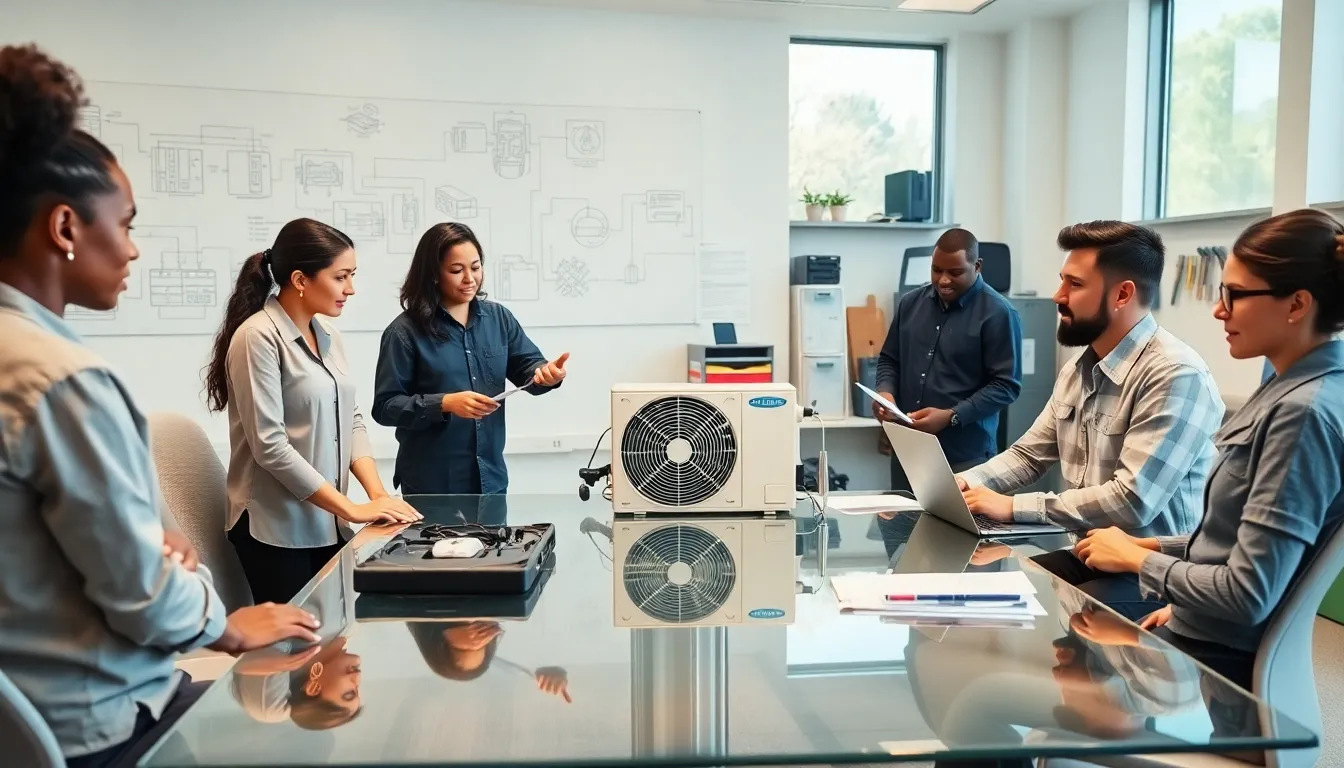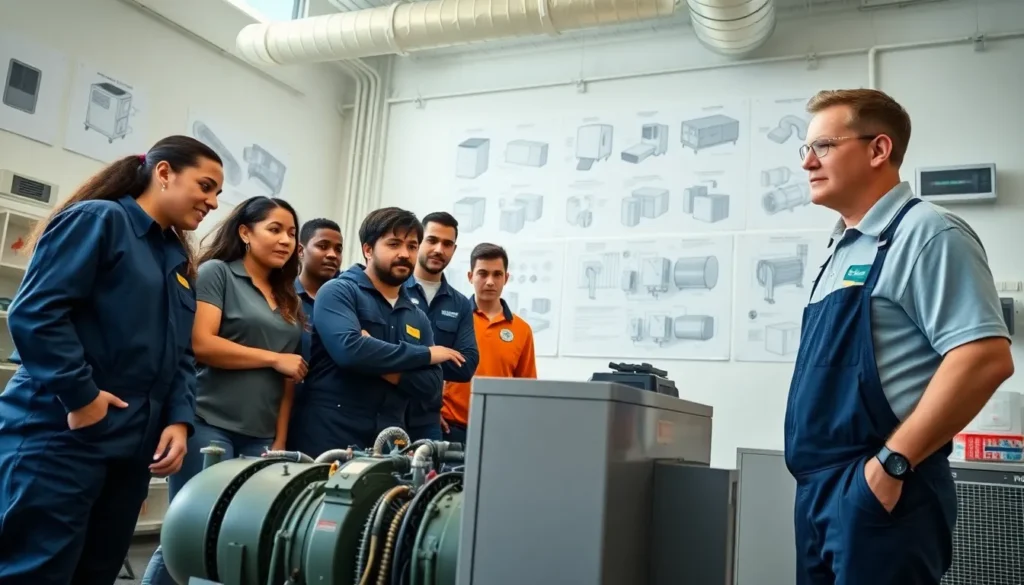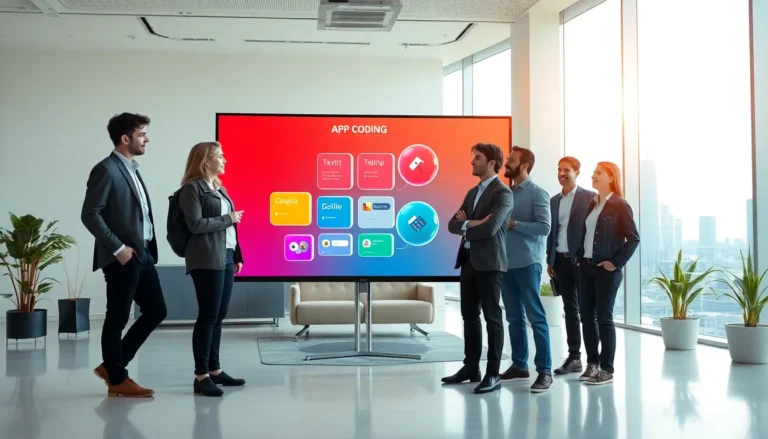Imagine a world without heating in winter or air conditioning in the summer. Scary, right? HVAC (Heating, Ventilation, and Air Conditioning) technicians are the unsung heroes making that nightmare a reality. As the demand for climate control technology soars, so does the need for skilled professionals. But where do you start if you want to join their ranks? Strap in, as we jump into the world of HVAC tech training, complete with laughs, insights, and everything else you need to get those cooling points.
Table of Contents
ToggleUnderstanding HVAC Systems

HVAC systems are marvels of engineering, designed to keep indoor environments comfortable regardless of the weather outside. These systems generally consist of three main components: heating, ventilation, and air conditioning.
- Heating: Most systems use furnaces or boilers to heat a space. Common fuels for heating include natural gas, electricity, or even oil.
- Ventilation: Proper ventilation ensures fresh air circulates through buildings, removing stale air while preventing excess moisture, which can lead to mold.
- Air Conditioning: This is where the ‘cool’ factor comes into play. Air conditioning systems cool and dehumidify indoor air, using a vapor-compression cycle.
By mastering the intricacies of HVAC systems, trainees learn how to troubleshoot, maintain, and repair equipment effectively, making them invaluable in today’s job market.
Importance of HVAC Training
HVAC training is crucial for several reasons: it equips individuals with the skills needed to meet industry standards and ensures safety in handling complex equipment.
Consider this: HVAC technicians work with gas lines, electrical systems, and refrigerants, all of which can be dangerous if mishandled. Comprehensive training minimizes these risks. Besides, as technology continues to advance, staying updated on new systems and practices becomes critical. Companies often prefer candidates with formal training because it shows proficiency, problem-solving skills, and a commitment to professionalism.
Types of HVAC Training Programs
Diverse HVAC training programs exist, catering to various learning styles and career aspirations. Here are some popular options:
- Certificate Programs: Typically lasting a few months, these programs provide core knowledge and hands-on training. Graduates often find entry-level positions quickly.
- Associate Degrees: Two-year programs offer a more in-depth study of HVAC technology, often including business management courses. Graduates may qualify for supervisory roles.
- Apprenticeships: Many aspiring technicians choose this route, combining paid work with classroom learning. It’s an excellent way to gain real-world experience while earning a paycheck.
Key Skills Developed in HVAC Training
As HVAC training progresses, individuals develop a mix of technical and soft skills that enhance their employability. Some key skills include:
- Technical Knowledge: Understanding electrical systems, refrigeration cycles, and thermodynamics is fundamental.
- Problem-Solving: Technicians often face unique challenges on the job. Their training equips them with strategies to troubleshoot efficiently.
- Communication Skills: Technicians must explain issues and solutions clearly to clients, often needing customer service skills.
- Physical Stamina: HVAC roles can be demanding, requiring technicians to lift heavy equipment and work in confined spaces.
Certification and Licensing Requirements
Certification and licensing requirements vary by state, but most jurisdictions require technicians to hold certain certifications. Common credentials include:
- EPA Certification: Required for anyone handling refrigerants, this certification ensures technicians are knowledgeable about environmental regulations.
- Various State Licenses: Many states mandate licenses to operate HVAC systems legally, promoting public safety and ensuring a high standard of work.
Career Opportunities for HVAC Technicians
For those completing HVAC training, a world of job opportunities awaits. They can explore numerous career paths, such as:
- Residential HVAC Technician: Working directly with homeowners to install, maintain, or repair systems.
- Commercial HVAC Technician: Dealing with larger systems in business environments: often requires specialized knowledge.
- HVAC Sales Representative: Combining technical expertise with sales skills, these individuals help customers choose the right systems for their needs.
- Energy Auditor: Evaluating energy efficiency in buildings, identifying areas for improvement and helping clients reduce costs.










